It may come as a surprise, but many popular skin care products contain harmful ingredients, toxins, and chemicals that can have negative health effects. This is the real cost of beauty. However, you can opt for natural skin care ingredients to avoid these chemical-laden options.
In reality, most beauty products sold in stores are manufactured with artificial colors, fragrances, preservatives, and stabilizers, which can be absorbed through the pores and lead to various health problems.
The chemicals present in beauty products can harm the environment during their production, use, and disposal. So, what does this mean for your beauty routine? Fortunately, there are many “clean beauty” products available for your skin, hair, teeth, and nails that are made from natural ingredients that are not harmful to your health.
For centuries, women worldwide have used natural skin care products, and they often have beautiful skin to show for it. These natural ingredients are usually inexpensive and readily available.
What is natural skin care?
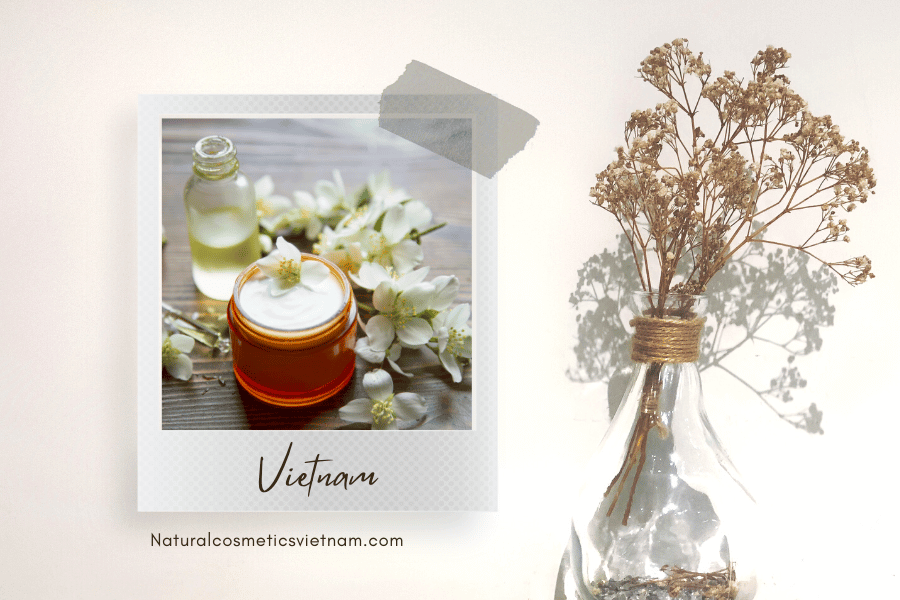
Natural skin care: All that you need
Natural skin care incorporates ingredients derived from nature, such as herbs, flowers, roots, fruits, and other plants.
The availability of natural skin care products has increased, and their benefits extend beyond just improving the appearance of your skin. Regular use of natural products can provide antioxidants, enhance UV resistance, and stimulate the immune system.
According to a study published in the journal Biogerontology, natural anti-aging ingredients that follow hormetic pathways can function as moisturizing agents, barrier repair agents, antioxidants, vitamins, hydroxy acids, skin lightening agents, anti-inflammatory ingredients, and sunblock ingredients.
Research has shown that many plants contain phytomolecules, amino acids, and fatty acids that protect our skin, such as polyphenols, triterpenes and sterols, carnosic acid, rosmarinic acid, polyunsaturated fats, and more.
By applying unprocessed, whole-food ingredients to your skin, including ones that you may already have in your kitchen, you can improve your skin’s health, even if you have sensitive skin or have struggled with skin-related issues in the past.
The Hidden Toxicity of Most Beauty Products
Many store-bought skin care products contain harmful ingredients and synthetic fragrances that have been linked to a range of potential health problems. These can include hormone imbalances, irregular periods, infertility, allergies, and even cancer.
One of the most significant consequences of prolonged exposure to these toxins from commercial skin care products is hormone disruption. Many products contain hormone disruptors, which are external, or exogenous, hormones produced outside the body that can affect hormones inside the body. These include synthetic hormones that can negatively impact the endocrine system, leading to menstrual cycle irregularities, fertility issues, and even changes in hormone levels in men.
Known as endocrine disruptors, some of these chemicals have molecular structures that closely resemble natural estrogen, allowing them to fit into the same receptors in the body. They can bind to these receptors and interfere with the body’s natural hormone production, turning genes on and off, amplifying the negative aspects of estrogen, or negatively affecting chromosomes or DNA.
How is it possible for these harmful ingredients to be used in our beauty products? Consider these facts regarding store-bought beauty products:
Regulations surrounding the cosmetic and personal-care industry are minimal. Most products receive approval for commercial use with an easy approval process. Many store-bought skin care ingredient labels are concerning, with thousands of chemicals in each product that can be directly absorbed into your body. The skin care industry is highly unregulated, even in the United States, with little government review or approval.
The majority of skin care and beauty products, including cleaners, moisturizers, anti-aging serums, and scrubs, use inorganic compounds and petroleum-based gels as their foundation. These mineral oils are not naturally harvested from plants, and can clog pores and reduce the skin’s natural ability to expel toxins, leading to increased acne and signs of aging.
Several harmful chemicals used in store-bought products include parabens (used for preservation), synthetic colors (derived from petroleum or coal tar sources), fragrance (associated with allergies and respiratory distress), toluene (used to dissolve paint), and sodium lauryl sulfate (known to cause kidney and respiratory damage).
Using chemical-laden products can limit the skin’s natural healing processes and damage the immune system, eyes, and respiratory system. Many of these chemicals are also skin irritants, leading to redness, dryness, and flaky skin.
Making your own homemade scrubs and lotions is better for the environment, as petroleum-based oils are made from unsustainable fossil fuel and the plastic packaging contributes to waste. However, it is worth noting that not all processed or refined skin care ingredients are harmful; ingredients like hyaluronic acid and salicylic acid can support skin health if used in products that are free of other irritants.
Benefits of natural skin care
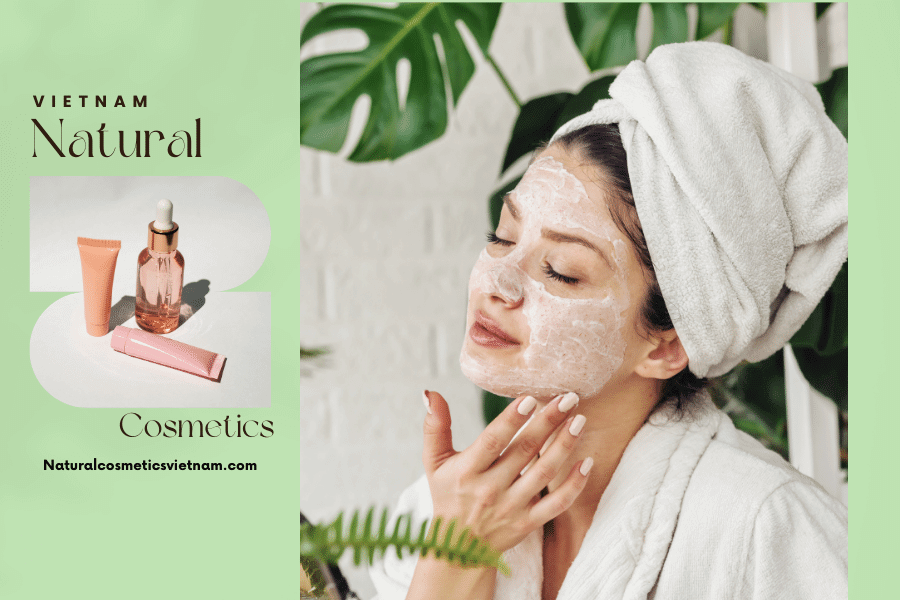
Natural skin care: All that you need
Natural skin care offers numerous benefits for your skin, health, and the environment. Here are some of the benefits of using natural skin care products:
No harmful chemicals
Natural skin care products do not contain harmful synthetic chemicals, such as parabens, phthalates, and sulfates. These chemicals are commonly found in many commercial skincare products and have been linked to various health concerns, including skin irritation, allergic reactions, hormone disruption, and even cancer.
Natural skin care products use plant-based ingredients that are gentle and safe for the skin. These ingredients are often sourced from organic and sustainable farming methods and are processed using minimal or no chemicals.
By using natural skin care products, you can avoid exposing your skin and body to potentially harmful chemicals, promoting better overall health and well-being. Additionally, the use of natural ingredients helps to reduce the environmental impact of skincare products, supporting a healthier planet.
Gentle on the skin
Natural skin care products are often gentler on the skin compared to their commercial counterparts. This is because they are made from natural ingredients that are less likely to cause skin irritation, redness, or allergic reactions.
Natural skin care products use ingredients like plant extracts, essential oils, and minerals that work in harmony with the skin’s natural functions. These ingredients help to nourish and protect the skin, promoting a healthier and more youthful appearance.
Commercial skincare products, on the other hand, often contain harsh chemicals and synthetic fragrances that can strip the skin of its natural oils, leaving it dry, itchy, and irritated. This can also disrupt the skin’s microbiome, leading to imbalances that may cause acne, inflammation, and other skin problems.
By using natural skin care products, you can enjoy the benefits of a gentle and nourishing skincare routine that supports the health and vitality of your skin.
Nourishing and moisturizing
Natural skin care products are often rich in vitamins, minerals, and antioxidants, which can nourish and moisturize the skin. These ingredients help to replenish the skin’s natural oils and promote hydration, leaving the skin soft, supple, and glowing.
Many natural skin care ingredients have moisturizing properties, such as honey, coconut oil, shea butter, and aloe vera. These ingredients help to lock in moisture and protect the skin from dryness and environmental damage.
Natural skin care products also contain nourishing ingredients that help to repair and rejuvenate the skin. For example, plant extracts like chamomile and calendula have anti-inflammatory properties that can soothe irritated skin and promote healing. Antioxidants like vitamin C and green tea extract can help to protect the skin from damage caused by free radicals and UV radiation.
By using natural skin care products, you can provide your skin with the nutrients it needs to stay healthy and vibrant. The natural ingredients used in these products can help to prevent premature aging, reduce the appearance of fine lines and wrinkles, and promote a more youthful and radiant complexion.
Anti-aging
Natural skin care products often contain ingredients that have anti-aging properties. These ingredients can help to reduce the appearance of fine lines, wrinkles, and age spots, giving your skin a more youthful and radiant appearance.
One of the most popular anti-aging ingredients in natural skin care is retinol, a derivative of vitamin A. Retinol helps to boost collagen production, which can improve the elasticity and firmness of the skin. Other anti-aging ingredients commonly found in natural skin care products include vitamin C, vitamin E, hyaluronic acid, and antioxidants like green tea and pomegranate.
Natural anti-aging ingredients often work by stimulating cell turnover, promoting the growth of new skin cells and collagen production. They also help to protect the skin from damage caused by free radicals and environmental stressors.
By incorporating natural anti-aging products into your skincare routine, you can improve the overall health and appearance of your skin, helping to reduce the signs of aging and promote a more youthful and radiant complexion.
Environmentally friendly
Natural skin care products are often more environmentally friendly than their commercial counterparts. This is because they are made using natural and organic ingredients that are sourced from sustainable farming practices and processed using minimal or no chemicals.
Commercial skincare products often contain synthetic chemicals that can be harmful to the environment. These chemicals can accumulate in waterways, polluting the ecosystem and harming wildlife. In contrast, natural skin care products are biodegradable, meaning they can break down naturally without harming the environment.
Many natural skin care companies also prioritize eco-friendly packaging, using recyclable or biodegradable materials like glass, paper, and bamboo instead of plastic. This reduces the amount of waste that ends up in landfills and contributes to environmental pollution.
By using natural skin care products, you can reduce your environmental footprint and support sustainable practices in the beauty industry. Choosing eco-friendly skincare products is an important step towards creating a healthier and more sustainable planet.
Cost-effective
Natural skin care products can be cost-effective, especially when compared to high-end commercial products. Natural ingredients like honey, coconut oil, oatmeal, and apple cider vinegar are often readily available and can be used to make simple and effective skincare treatments at home.
Many natural skin care products are also multi-functional, serving multiple purposes, such as moisturizing, exfoliating, and cleansing, in one product. This can help to reduce the number of products needed in your skincare routine and save you money in the long run.
In addition, natural skin care products are often sold in smaller, more concentrated amounts, as the natural ingredients used are potent and effective. This means that a little goes a long way, and you can use less product to achieve the same results as a larger amount of a commercial product.
Overall, natural skin care products can be a cost-effective alternative to commercial skincare products. By using natural ingredients and incorporating simple DIY treatments into your skincare routine, you can achieve healthy, glowing skin without breaking the bank.
Benefits of natural skin care for different skin types

Natural skin care: All that you need
For oily skin
Natural skin care can be beneficial for oily skin because it uses ingredients that can help to balance the skin’s natural oils, reduce inflammation, and prevent breakouts. Oily skin is often caused by an overproduction of sebum, which can lead to clogged pores, acne, and other skin problems.
Natural skin care products are often made from plant-based ingredients that are gentle and safe for the skin. These ingredients can help to regulate sebum production, reduce inflammation, and prevent acne breakouts.
Some natural ingredients that can be helpful for oily skin include tea tree oil, witch hazel, aloe vera, charcoal, and green tea extract. These ingredients have antibacterial, anti-inflammatory, and astringent properties, which can help to reduce oil production, shrink pores, and prevent breakouts.
Natural skin care products are often free from synthetic chemicals and harsh detergents that can strip the skin of its natural oils and exacerbate oily skin. By using natural skin care products, you can avoid exposing your skin to potentially harmful ingredients and promote overall skin health and well-being.
For dry skin
Natural skin care can be very beneficial for dry skin because it uses ingredients that are rich in moisture and can help to hydrate and nourish the skin. Dry skin is often caused by a lack of moisture, and commercial skin care products that contain harsh chemicals and synthetic fragrances can strip the skin of its natural oils, exacerbating dryness and irritation.
Natural skin care products, on the other hand, are made from natural ingredients like plant extracts, essential oils, and butters that are rich in vitamins, minerals, and antioxidants. These ingredients help to nourish and hydrate the skin, promoting a healthy, glowing complexion.
Many natural skin care ingredients have emollient and humectant properties, which means they can help to seal in moisture and prevent dryness. Ingredients like shea butter, coconut oil, and jojoba oil are all great sources of moisture that can help to deeply hydrate and nourish dry skin.
Additionally, natural skin care products are often free from harsh chemicals and synthetic fragrances that can further dry out the skin. By using natural skin care products, you can avoid exposing your skin to potentially harmful ingredients and promote overall skin health and well-being.
For combination skin
Natural skin care can be beneficial for combination skin because it uses ingredients that can help to balance the skin’s natural oils, provide hydration, and prevent breakouts. Combination skin is a skin type that is characterized by having both oily and dry areas on the face, and it can be challenging to find products that work for both areas.
Natural skin care products are often made from plant-based ingredients that are gentle and safe for the skin. These ingredients can help to regulate sebum production, reduce inflammation, and provide hydration where needed.
Some natural ingredients that can be helpful for combination skin include aloe vera, green tea extract, chamomile, and jojoba oil. These ingredients have soothing, hydrating, and anti-inflammatory properties, which can help to balance the skin and provide hydration where needed without exacerbating oily areas.
Natural skin care products are often free from synthetic chemicals and harsh detergents that can strip the skin of its natural oils and exacerbate oily areas while leaving dry areas feeling even drier. By using natural skin care products, you can avoid exposing your skin to potentially harmful ingredients and promote overall skin health and well-being.
For acne-prone skin
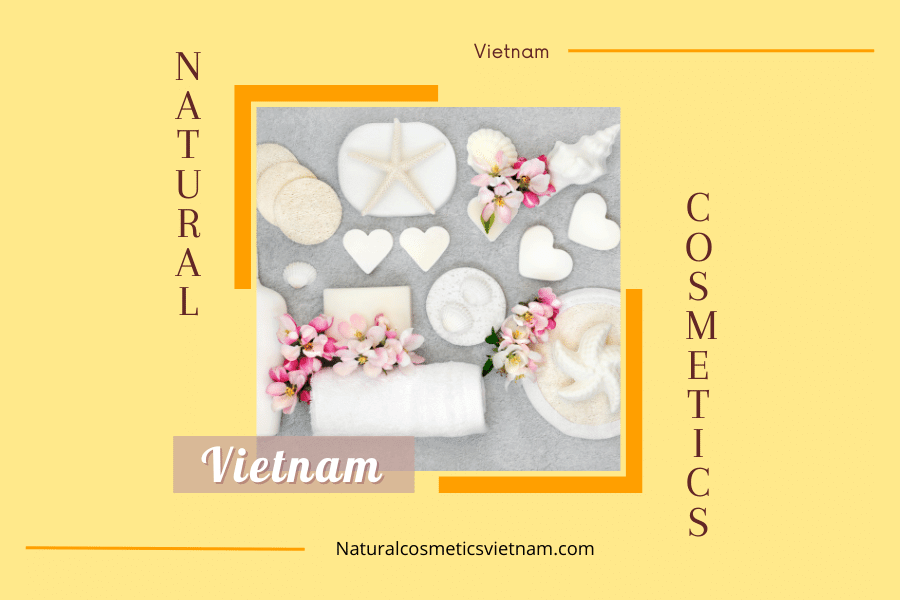
Natural skin care: All that you need
Natural skin care can be beneficial for acne-prone skin because it uses ingredients that can help to reduce inflammation, regulate sebum production, and prevent acne breakouts. Acne is a skin condition that is caused by clogged pores, inflammation, and excess oil production.
Natural skin care products are often made from plant-based ingredients that are gentle and safe for the skin. These ingredients can help to soothe and calm the skin, reduce inflammation, and provide hydration without clogging pores.
Some natural ingredients that can be helpful for acne-prone skin include tea tree oil, witch hazel, aloe vera, charcoal, and green tea extract. These ingredients have antibacterial, anti-inflammatory, and astringent properties, which can help to prevent acne breakouts and reduce inflammation.
Natural skin care products are often free from synthetic chemicals and harsh detergents that can irritate the skin and exacerbate acne. By using natural skin care products, you can avoid exposing your skin to potentially harmful ingredients and promote overall skin health and well-being.
For sensitive skin
Natural skin care can be beneficial for sensitive skin because it uses ingredients that are gentle and safe for the skin, and are less likely to cause irritation, redness, or allergic reactions. Sensitive skin is a skin type that is easily irritated and prone to redness, itching, and dryness.
Natural skin care products are often made from plant-based ingredients that are gentle and non-irritating, and are free from synthetic chemicals and fragrances that can exacerbate sensitivity. These ingredients can help to soothe and calm the skin, reduce inflammation, and provide hydration without causing irritation.
Some natural ingredients that can be helpful for sensitive skin include chamomile, aloe vera, lavender, oatmeal, and calendula. These ingredients have anti-inflammatory, soothing, and hydrating properties, which can help to reduce redness and irritation in sensitive skin.
Natural skin care products are often formulated without harsh detergents, synthetic fragrances, and other potential irritants. By using natural skin care products, you can avoid exposing your skin to potentially harmful ingredients and promote overall skin health and well-being, while reducing the risk of irritation and allergic reactions.
For darker skin tones
Natural skin care can be beneficial for darker skin tones because it uses ingredients that can help to address some of the specific skincare needs of people with darker skin. Darker skin tones can be prone to hyperpigmentation, uneven skin tone, and inflammation, and natural skin care products can help to address these issues.
Natural skin care products are often made from plant-based ingredients that are gentle and safe for the skin, and can help to brighten, hydrate, and reduce inflammation without causing irritation. These ingredients can help to even out skin tone, reduce the appearance of dark spots, and promote a healthy, radiant complexion.
Some natural ingredients that can be helpful for darker skin tones include vitamin C, licorice extract, turmeric, and rosehip oil. These ingredients have brightening and antioxidant properties, which can help to reduce hyperpigmentation and protect the skin from environmental stressors.
Natural skin care products are often formulated without harsh chemicals, synthetic fragrances, and other potential irritants, which can be especially beneficial for people with darker skin tones, who are more prone to post-inflammatory hyperpigmentation. By using natural skin care products, you can promote overall skin health and well-being, and address the specific skincare needs of darker skin tones.
While natural skin care products may potentially benefit acne, it’s important to see a dermatologist for a correct diagnosis for other skin conditions, such as cancer or vitiligo.
Cons of natural skin care
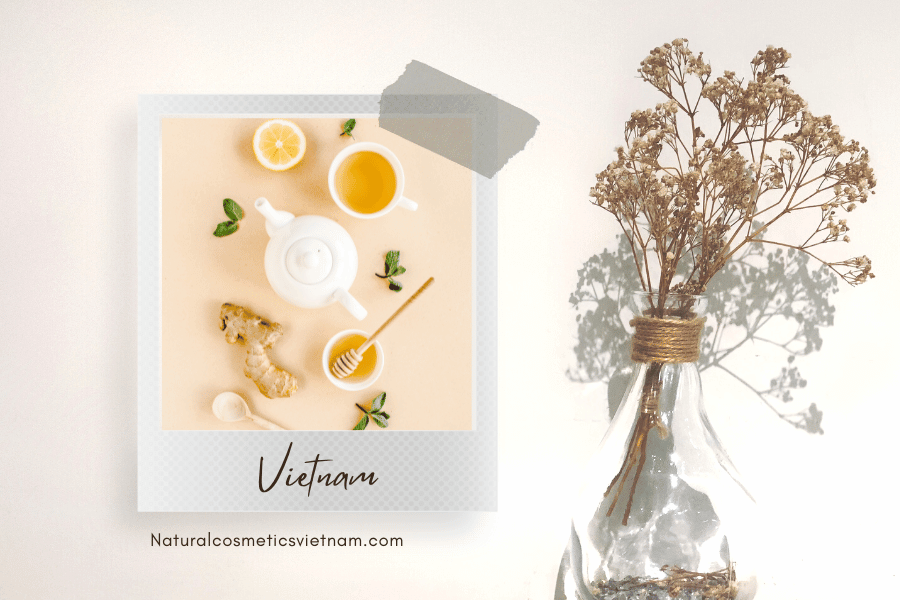
Natural skin care: All that you need
Natural skin care, like any other type of skin care, has its own set of strengths and weaknesses. Here are some potential drawbacks of natural skin care:
Limited efficacy
Limited efficacy of natural skin care refers to the fact that natural skin care products may not be as effective as synthetic products in treating more severe or complex skin conditions. While natural ingredients can provide a range of benefits for the skin, such as hydration, antioxidant protection, and soothing properties, they may not be able to deliver the same level of targeted results as synthetic ingredients.
For example, synthetic ingredients such as retinoids and hydroquinone are widely used in the treatment of acne, hyperpigmentation, and other skin issues. While there are natural alternatives available, such as tea tree oil and licorice root extract, they may not be as potent or effective in treating these conditions.
That being said, natural skin care can still be a great option for those looking for a gentler and more sustainable approach to skin care. Natural ingredients can provide a range of benefits for the skin, such as moisturization, nourishment, and protection, and can help maintain healthy and radiant skin. However, it is important to be realistic about the limitations of natural skin care and to seek professional advice when dealing with severe or chronic skin conditions.
Inconsistent quality
Inconsistent quality is a potential drawback of natural skin care products. Natural skin care products can vary widely in terms of quality, purity, and efficacy, as there is no regulatory body that oversees their production. This means that some natural skin care products may contain lower concentrations of active ingredients, be contaminated with impurities or bacteria, or even be mislabeled or falsely advertised.
Additionally, the quality of natural ingredients can also vary depending on factors such as where they were sourced, how they were harvested or processed, and how they were stored. For example, some natural ingredients may lose their potency if they are not stored properly, or if they are exposed to air, light, or heat.
To ensure that you are using high-quality natural skin care products, it is important to do your research and choose products from reputable brands that prioritize transparency, sustainability, and quality control. Look for products that have been third-party tested, that contain high concentrations of active ingredients, and that are free from potentially harmful additives or contaminants. Additionally, it is always a good idea to patch test new products before applying them to your entire face or body, to minimize the risk of allergic reactions or irritation.
Shorter shelf life
Shorter shelf life is another potential drawback of natural skin care products. Unlike synthetic products, natural skin care products do not contain the same preservatives, which can help extend their shelf life. As a result, natural skin care products may have a shorter shelf life and may need to be used within a certain timeframe to ensure their efficacy and safety.
Natural ingredients can be more vulnerable to spoilage and oxidation, which can degrade their quality and potency over time. Exposure to light, heat, and air can also accelerate this process, causing natural skin care products to lose their effectiveness and potentially even become contaminated with bacteria or other microorganisms.
To extend the shelf life of natural skin care products, it is important to store them in a cool, dark place, away from direct sunlight and heat sources. Additionally, it is important to follow the manufacturer’s instructions for use and to use the product within the recommended timeframe. Finally, it is a good idea to periodically check the product’s consistency, color, and smell, and to discard any products that appear to be expired or have changed in any way.
Higher cost
Higher cost is another potential drawback of natural skin care products. Natural skin care products can be more expensive than their synthetic counterparts due to the cost of sourcing high-quality natural ingredients, as well as the additional labor and production costs associated with formulating and manufacturing natural products.
Natural ingredients can be more difficult and expensive to source and may require sustainable and ethical sourcing practices to ensure their quality and purity. Additionally, natural ingredients may be subject to seasonal availability or fluctuating market prices, which can further drive up the cost of natural skin care products.
However, while natural skin care products may be more expensive upfront, they can offer long-term benefits for both your skin and the environment. Natural ingredients can provide a range of benefits for the skin, such as hydration, nourishment, and protection, and may be gentler and less likely to cause irritation or allergic reactions. Additionally, natural skin care products are often formulated with sustainable and eco-friendly ingredients and packaging, which can help reduce your environmental impact and support ethical and responsible business practices.
When considering the cost of natural skin care products, it is important to weigh the benefits and potential drawbacks of both natural and synthetic products, and to choose products that align with your personal values and priorities. Additionally, it may be helpful to research different brands and compare prices and ingredients to ensure that you are getting the best value for your money.
Limited availability
Limited availability is another potential drawback of natural skin care products. Natural skin care products may not be as widely available as their synthetic counterparts, particularly in areas where access to natural ingredients is limited or where there is less demand for natural products.
Natural ingredients may be more difficult to source, and not all companies may be able to secure a consistent supply of high-quality natural ingredients. This can lead to limited availability and higher prices for natural skin care products, as well as reduced product selection and variety.
However, with the growing demand for natural and eco-friendly products, many companies are expanding their natural skin care product lines and making them more widely available to consumers. Additionally, online shopping has made it easier than ever to access a wide range of natural skin care products from around the world.
To find natural skin care products that are right for you, it may be helpful to do your research, read reviews, and explore different brands and products. You may also want to consider shopping at specialty stores or online retailers that specialize in natural and organic products, as they may have a wider selection of natural skin care products to choose from.
Allergic reactions
Allergic reactions are a potential drawback of natural skin care products, just like synthetic products. Natural skin care products can contain a wide range of plant-based ingredients, such as essential oils, botanical extracts, and nut oils, which can be potent allergens and irritants for some people.
Individuals with sensitive skin or a history of allergies or skin reactions should be particularly cautious when trying new natural skin care products, and should always perform a patch test on a small area of skin before using the product on a larger area. This can help to minimize the risk of an allergic reaction or skin irritation.
It is also important to carefully read the product labels and ingredient lists of natural skin care products, and to avoid any ingredients that you know you are allergic or sensitive to. If you experience any signs of an allergic reaction, such as itching, redness, or swelling, discontinue use of the product immediately and consult a dermatologist.
To minimize the risk of allergic reactions and other adverse skin reactions, it is also important to choose natural skin care products from reputable brands that prioritize safety and quality control, and that have been third-party tested for purity and efficacy.
Terms to know
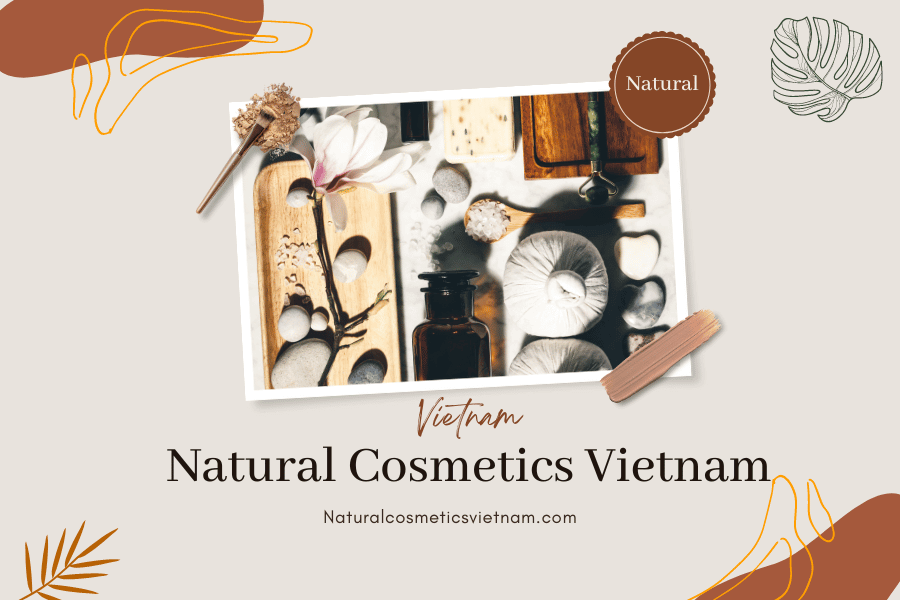
Natural skin care: All that you need
When searching for clean skin care products, it is important to understand the meaning behind different terms. The term “natural” is not regulated and does not provide much information about a product’s ingredients. To ensure that a product is truly natural, it is important to read the ingredient label.
Here are some natural skin care terms that can help you understand your options:
- Hypoallergenic – Indicates that a product contains fewer ingredients known to cause an allergic reaction, but this is not a regulated medical term.
- Fragrance-free – Free from added fragrances that can cause irritation, but may still have a scent from natural ingredients like essential oils.
- Non-comedogenic – Does not clog pores.
- Non-irritating – Typically free from parabens, fragrances, soaps, and non-drying.
- 100% pure – Made with only one ingredient and free from fillers and additives.
- Vegan – Does not contain animal products like honey, dairy, eggs, or collagen.
- Cruelty-free – Not tested on animals and made without harming animals.
- Organic – Made with ingredients that are naturally grown and not contaminated with pesticides or chemicals.
When choosing a new product, there are several things to consider.
What is the product derived from?
The first question to ask when considering a product is what it contains and where those ingredients come from. Are they derived from natural sources, such as plants, animals, minerals, or marine sources? Or are they derived from petrochemicals?
There are three categories of ingredients:
Naturally-occurring – These ingredients are used in their natural, unprocessed state. Examples include raw honey and crushed flowers. Nature-identical – These ingredients are produced in a lab and are chemically identical to those found in nature. An example is sorbic acid, originally derived from rowan berries and now commonly used as a nature-identical ingredient. Synthetic – These ingredients are created and processed in a lab. An example is parabens, which are common preservatives found in cosmetics and skin care products.
How is it processed?
It is important to note that just because ingredients are derived naturally, it does not mean they are processed naturally. Ingredients can undergo physical or chemical processing, which can affect their molecular composition or structure.
Physically processed ingredients maintain the same molecular composition or structure. Examples include raw, unrefined oils and butters, which are processed through methods such as cold-pressing or filtration.
Chemically processed ingredients, on the other hand, undergo changes to their molecular composition or structure. An example of a naturally derived but chemically processed ingredient is castor wax. It is a vegetable wax derived from the castor bean and produced through hydrogenation, which involves adding hydrogen to pure castor oil.
Know your labels
The term “natural” encompasses various certifications and marketing claims, some of which are regulated, while others are not. It is important to be aware of these distinctions when shopping for natural products to ensure that you are getting what you expect and that the product meets your standards.
Organic
Companies have the option to obtain organic certification for their products through a trusted source. Alternatively, they may choose to label their products as organic to indicate that all ingredients are derived from organic sources, even if the product itself is not certified.
Green
The term “green” typically refers to the environmental impact and sustainability of a product. Green products are often produced with the goal of minimizing their environmental footprint. This may involve using raw materials that are sustainably harvested to support the environment rather than harm it. It’s important to note that because this term is unregulated, its meaning may vary between different brands and products.
Clean
The term “clean” generally refers to products that prioritize being non-toxic. It’s important to note, however, that there is no federal regulation around this term, and therefore its meaning may vary between different brands and products.
Vegan
These products are made without any animal-derived ingredients.
Cruelty-free
The term “cruelty-free” refers to products that have not been tested on animals as a finished product. However, it’s worth noting that individual ingredients used in the product may still have been tested on animals. It’s also important to understand that while vegan products are usually cruelty-free, cruelty-free products are not always vegan. For instance, an organic lip balm that contains beeswax may still be labeled as cruelty-free. Although there is no regulation for these terms, several organizations certify vegan and cruelty-free products to provide assurance to consumers.
Fair-trade
This regulated term focuses on ingredient sourcing and ensures that ingredients are ethically sourced with consideration for the planet, people, and the environment.
Best Skin Care Ingredients
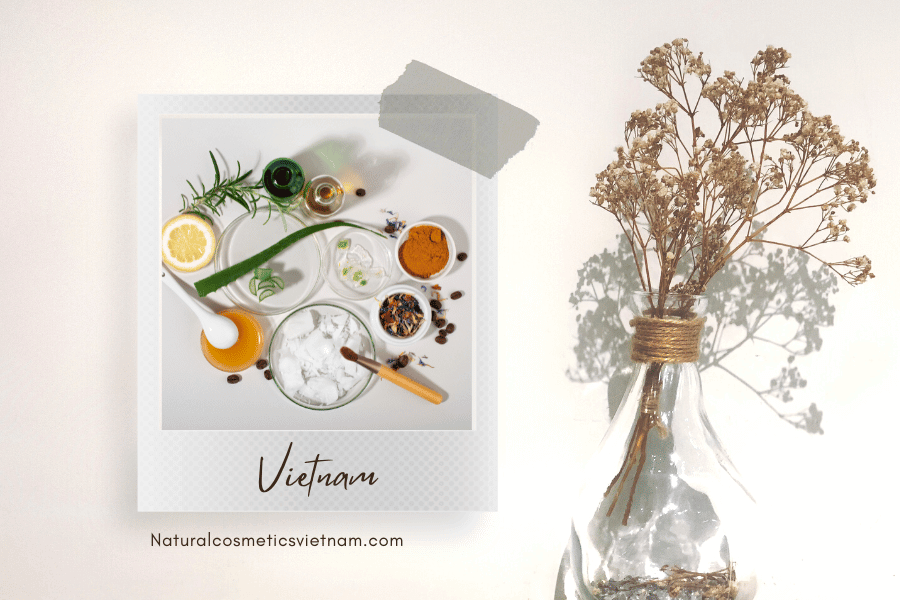
Natural skin care: All that you need
Navigating the world of skincare products can be overwhelming, with numerous options and ingredient lists full of difficult-to-pronounce names for every serum, moisturizer, and eye cream.
When searching for skincare products, it’s important to apply the same principles you use when selecting a healthy diet. Look for unprocessed ingredients without harsh chemicals or artificial additives. Essentially, the more natural the skincare product is, the more effectively your skin can utilize its beneficial properties.
To revamp your beauty routine, consider trying out these 13 natural skincare products.
Coconut Oil
Coconut oil is a versatile ingredient that offers numerous benefits for both skin and overall health. When used on the skin, it can help:
- Strengthen underlying epidermal tissue
- Remove dead skin cells
- Protect against sunburn
- Provide antibacterial, antiviral, antifungal, and antioxidant properties
Research has also shown that coconut oil can help fight chronic skin conditions such as atopic dermatitis.
Coconut oil is an excellent natural moisturizer that can be used on both skin and hair. It works best for those with dry or combination skin, rather than oily skin. Additionally, it can help cleanse the skin, remove makeup, speed up the healing of wounds and scars, and prevent razor burn.
When consumed internally, coconut oil can also benefit your appearance. It contains healthy fats that nourish your gut and boost your immune function, as well as antibacterial and anti-inflammatory properties.
Tea Tree Oil
Tea tree, a native plant of Australia, has been used for centuries to combat skin breakouts, redness, and inflammation. Unlike typical acne treatments that can cause harsh reactions, tea tree is generally well-tolerated and has few, if any, side effects.
Tea tree oil is a natural anti-inflammatory, antibacterial, antimicrobial, and antifungal agent, making it one of the most versatile and popular natural skin care ingredients. It contains volatile essential oils that come from nearly 230 different plant species, almost all of which are indigenous to Australia. Terpene hydrocarbons, monoterpenes, and sesquiterpenes are the primary active components responsible for its ability to reduce harmful bacteria.
Tea tree oil can be an effective home remedy for acne if your skin is prone to breakouts. Over 100 different chemical components and volatile hydrocarbons that are aromatic and capable of traveling through air, skin pores, and mucus membranes have been identified by researchers, providing healing benefits.
Apple Cider Vinegar
Apple cider vinegar is a highly versatile and cost-effective natural skin care ingredient. Its benefits include fighting pathogens such as bacteria, alleviating skin problems caused by gut issues, purifying the skin, preventing acne, and exhibiting antifungal properties.
The use of apple cider vinegar for skin problems dates back to Hippocrates, who recommended using it in combination with raw honey for cleaning ulcerations and treating skin sores.
In addition to its ability to promote healthy skin, apple cider vinegar also contains acetic acid, potassium, and magnesium, all of which can help to detoxify the body when ingested. It supports liver function and helps to balance bacteria in the gut.
Raw Honey
Raw honey is a rich source of nutrients, enzymes, vitamins and acids that promote healthy skin. Raw honey benefits include:
- Reducing breakouts
- Providing moisturizing properties
- Possessing antiseptic qualities
- Encouraging wound healing
- Fighting allergies or rashes
- Helping to reduce scars
Unlike most honeys found in grocery stores, raw honey is unheated, unprocessed, and unpasteurized. This means it retains all of its nutrients, which are not destroyed by processing.
Honey is an antimicrobial agent that is useful as a dressing for wounds and burns. It has been used in treatments for bacterial infections, dandruff, diaper rash, psoriasis and more.
Honey also works as a great natural skin care product for acne because it can be used in facial cleansers, even on sensitive or combination skin types.
Sea Salt
Sea salt is a mineral-rich natural ingredient that contains essential minerals and nutrients such as magnesium, calcium, sodium, and potassium that are beneficial for the skin. These minerals are similar to those found in our skin cells and bodies, making sea salt an effective ingredient for balancing, protecting, and restoring the skin.
Real Himalayan or Celtic sea salt can be used in homemade facial masks, toners, and scrubs combined with other skin-boosting ingredients like coconut oil, lavender essential oil, and raw honey. Sea salt is known to have anti-inflammatory properties that can help soothe and calm breakouts, remove dead skin cells and irritation, balance oil production, and improve the skin’s moisture retention.
Avocado
Avocado is a highly moisturizing fruit that can be particularly beneficial for dry skin. It is rich in healthy fatty acids, as well as vitamins A, D, and E that can penetrate the skin. Avocado has a number of benefits, including soothing sunburned skin, increasing collagen production, and treating age spots. It can also help reduce inflammation when applied topically or consumed internally. For anti-aging effects, try incorporating avocado into homemade face masks and following up with a hydrating eye cream.
Lemon Essential Oil
Lemon essential oil is a powerful antibacterial agent that can effectively reduce acne breakouts caused by bacteria buildup in pores. It is also useful for dull skin, helping to fade scars and age spots, exfoliate, brighten and tone oily skin, and reduce wrinkles.
Moreover, lemon oil is a versatile essential oil that can be used for various purposes such as teeth whitening, laundry freshening, cellulite cream, face wash, and household cleaning. To use it on the skin, mix it with a carrier oil such as jojoba oil and massage onto the affected area. It can also be used on hair to boost shine and remove buildup.
Argan Oil
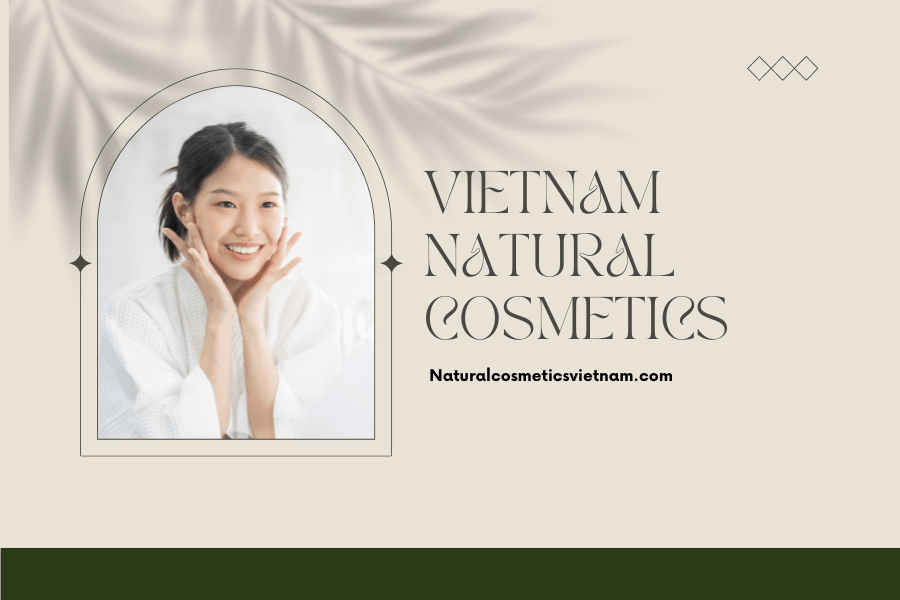
Natural skin care: All that you need
Argan oil, native to Morocco and traditionally used for generations, is highly valued for its natural anti-aging properties, as it contains vitamin A, vitamin E, antioxidants, omega-6 fatty acids, and linoleic acid. It is an excellent moisturizer for both the skin and hair, promoting shine and improving hair health.
To treat skin irritations such as acne, bug bites, eczema, dryness, and psoriasis, apply a small amount of pure argan oil directly to the affected area twice daily.
Aloe Vera
Although aloe vera is commonly known for its ability to soothe sunburns, it also contains powerful anti-inflammatory and antibacterial properties that can help reduce redness and itching caused by skin diseases and infections. Aloe has been used for hundreds of years in traditional Chinese medicine to treat fungal diseases as well.
Aloe vera is considered the most biologically active form of the Aloe barbadensis miller species and contains over 75 potentially active ingredients, including anti-inflammatory compounds, vitamins, minerals, saccharides, amino acids, fatty acids, enzymes, lignin, and salicylic acids. These natural components give aloe its antimicrobial and antifungal properties that make it a powerful remedy for supporting skin health and potentially reducing signs of aging by promoting a healthy skin barrier.
Research studies have found aloe vera to be effective in healing burns and wounds, and it may also have detoxifying effects when taken orally. Aloe has been shown to decrease the size and number of tumors and parasites in the liver, spleen, and bone marrow.
Aloe vera plants produce two substances that are used in medicine: the gel found in the center of the leaf’s cells and the latex obtained from the cells just beneath the leaf’s skin. These substances can be used as a natural remedy for burns, frostbite, psoriasis, and cold sores.
Jojoba Oil
Jojoba oil is a widely used carrier oil known for its exceptional moisturizing properties and ability to treat various skin conditions, including burns, scars, dermatitis, acne, psoriasis, and wrinkles. It is native to the southern U.S. and Mexico and is also used to promote hair growth, soothe the scalp, and unclog hair follicles.
What makes jojoba oil unique is its chemical structure, which is that of a polyunsaturated wax. Due to its waxy composition, jojoba oil is particularly effective in protecting the skin, providing natural moisturization, and soothing the scalp.
Almond Oil
Almond oil is not only a nutritious food but also has beneficial effects on the skin due to its anti-inflammatory, antiviral, antibacterial, and antiseptic properties. Its pleasant aroma makes it a popular choice for use in skin care.
Almond oil can be used as a carrier oil for essential oils that help to treat skin rashes, acne, or dryness, making it a great serum ingredient. It can be combined with different scents and used in homemade washes, masks, or lotions.
Shea Butter
For hundreds of years, shea butter has been a popular natural skin care product in Africa. It is still widely cultivated and exported globally today. Shea butter is an excellent moisturizer for those with dry skin types and is effective at reducing flaking, redness, or peeling. It is also safe to use around the eyes and can be added to natural eye creams and overnight hydrating lotions. Not only is it an affordable option, but it is also a natural way to nourish and hydrate the skin.
Castor Oil
Castor oil is a popular natural remedy for a variety of skin conditions, including acne, dermatitis, and psoriasis. It has anti-inflammatory, antimicrobial, and antioxidant properties that make it an effective treatment for reducing inflammation and promoting healthy skin.
Rich in ricinoleic acid, a fatty acid known for its ability to penetrate deep into the skin and provide intense hydration, castor oil is also used to soothe dry, itchy skin, and reduce the appearance of fine lines and wrinkles.
To use castor oil as a natural skin care product, mix it with a carrier oil like coconut or almond oil, and massage it into your skin before bed. You can also add a few drops of essential oils like lavender or tea tree oil for added benefits.
Natural Skin Care Routine
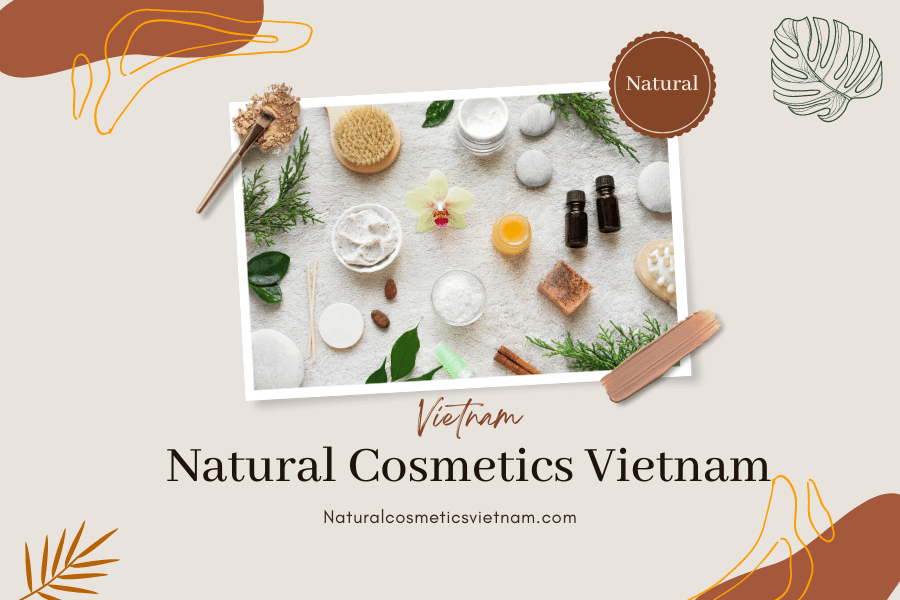
Natural skin care: All that you need
A natural skin care routine involves using products made from natural ingredients instead of harsh chemicals. Here’s a basic routine to follow:
Cleanse
The first step in any natural skin care routine is cleansing. It’s important to choose a gentle, natural cleanser that won’t strip your skin of its natural oils. Look for ingredients like honey, aloe vera, and chamomile, which are known for their soothing and moisturizing properties.
To cleanse your face, start by wetting your skin with lukewarm water. Apply a small amount of your chosen cleanser to your fingertips and massage gently into your skin, focusing on any areas with makeup, oil, or dirt buildup. Rinse thoroughly with lukewarm water and pat your skin dry with a clean towel.
Tone
After cleansing, toning is the next step in a natural skin care routine. Toning helps to remove any remaining impurities, balance the skin’s pH level, and prepare the skin for better absorption of moisturizers and other skin care products.
Natural toners include ingredients such as witch hazel, rose water, apple cider vinegar, and aloe vera. These ingredients have anti-inflammatory, antioxidant, and antibacterial properties, and can help to soothe and hydrate the skin.
To use a toner, apply it to a cotton pad or ball and swipe it gently over your face and neck, avoiding the eye area. Allow it to dry before moving on to the next step.
Treat
After toning, it’s time to treat specific skin concerns with targeted products. This step can involve using a variety of products, such as serums, masks, or spot treatments, depending on your skin concerns.
For example, if you have acne-prone skin, you may choose a spot treatment with tea tree oil or a face mask with activated charcoal to help draw out impurities. If you have dry or mature skin, you may opt for a serum with hyaluronic acid or vitamin C to hydrate and brighten your complexion.
It’s important to choose products that are specifically formulated for your skin type and concerns to get the best results. Also, be sure to patch test any new products before applying them to your entire face to avoid potential irritation or allergic reactions.
Moisturize
The final step in a natural skin care routine is to moisturize. Moisturizing helps to keep the skin hydrated and protected from environmental stressors. Here are some natural ingredients that are great for moisturizing the skin:
- Coconut oil: This natural oil is an excellent moisturizer that is easily absorbed by the skin.
- Shea butter: Rich in fatty acids, shea butter is a natural moisturizer that can help soothe dry and irritated skin.
- Jojoba oil: With its wax-like texture, jojoba oil can help to lock in moisture and prevent water loss from the skin.
- Aloe vera: In addition to its anti-inflammatory properties, aloe vera also helps to hydrate and soothe the skin.
- Avocado oil: Rich in vitamin E and fatty acids, avocado oil is an excellent natural moisturizer for dry skin.
When choosing a natural moisturizer, it’s important to consider your skin type and any specific skin concerns you may have. You can also look for products that contain a combination of natural ingredients to provide a range of benefits for the skin.
Protect
The final step in a natural skin care routine is to protect the skin from the sun’s harmful UV rays. This can be done by applying a natural sunscreen with an SPF of at least 30, or by using protective clothing and accessories like hats, sunglasses, and long sleeves.
It’s important to choose a sunscreen that uses mineral-based ingredients like zinc oxide or titanium dioxide, which are less likely to irritate the skin or cause allergic reactions. Apply sunscreen generously and reapply every two hours, or more frequently if you’re sweating or swimming.
In addition to using sunscreen, it’s important to avoid prolonged sun exposure during peak hours (usually 10am-2pm), seek shade when possible, and wear protective clothing to further reduce your risk of sun damage and premature aging.
In addition to using natural skin care products, it’s important to also practice good lifestyle habits, such as staying hydrated, eating a healthy diet, getting enough sleep, and reducing stress.
Take Probiotics
Just like any other organ in your body, your skin requires a steady supply of oxygen and nutrients to its cells while eliminating toxins. Thus, maintaining hormonal balance and a healthy digestive system are essential for achieving optimal skin health.
Probiotics, which are beneficial bacteria that aid in balancing the gut environment, have been linked to better immunity, hormonal regulation, and improved appetite and energy levels. They can also assist the immune and nervous system in neutralizing harmful toxins such as bad bacteria, yeast, viruses, fungi, and parasites that can manifest on the skin.
Take a Quality Omega-3 Supplement Cod Liver Oil
Healthy fatty acids in omega-3s are abundant, which can help keep dry skin hydrated and flexible. Additionally, they help regulate hormone function, maintain the health of the nervous system and immune function, and encourage a healthy inflammatory response.
Cod liver oil is an excellent source of skin-loving nutrients, including vitamins A, D, and K, omega-3s, and antioxidants.
Consider Using Collagen Protein
Collagen protein is becoming increasingly popular as one of the most effective natural supplements for skin care. It plays a key role in developing healthy skin cells and is responsible for maintaining the skin’s elasticity, softness, and firmness.
Although many topical products include collagen in their formulas to enhance their benefits, it is more efficient when taken internally. Collagen molecules are too large to be absorbed by the skin, and the best outcomes are obtained when it is produced internally.
Drink Plenty of Water
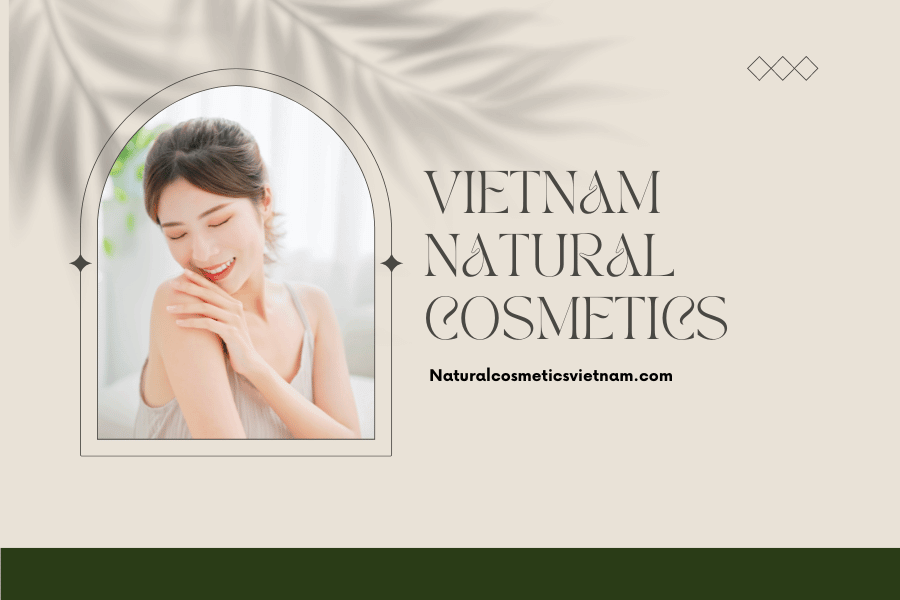
Natural skin care: All that you need
Adequate water intake is crucial for maintaining healthy skin. Drinking at least eight glasses of plain water every day is recommended by most experts, and even more if you have dry or problematic skin, or puffy and swollen eyes.
Water constitutes around 70 percent of your body, and a significant portion of your skin. It helps eliminate toxins from your bloodstream and cells, facilitating a natural detox process that prevents bacteria and waste from affecting your skin. Additionally, water is essential in keeping your skin hydrated, which has anti-aging benefits.
Insufficient water intake can cause your skin to look aged, dull, rough and cracked. Therefore, it is essential to consume an adequate amount of water to keep your skin healthy and glowing.
Exfoliate
In order to achieve a renewed and revitalized skin, exfoliation is an essential step. By removing dead skin cells, it allows for a fresh and healthy appearance while unclogging pores that are often congested with pollutants, cosmetics, and dead skin cells.
Using natural exfoliators like a pumice stone or dry brushing can be very effective, but it’s crucial to use them gently to avoid damaging the skin. Over-exfoliating can also lead to skin dehydration, so it’s best to limit exfoliation to once a week and avoid doing it right before sun exposure.
Get Good Sleep and Lower Stress
Adequate sleep and stress management are important factors to consider for maintaining healthy skin. Hormonal imbalance due to lack of sleep and high stress levels can lead to breakouts and other skin issues.
Getting enough restful sleep is crucial for healthy skin as it allows the body to focus on processes like digestion, muscle growth, and skin repair. During sleep, “happy hormones” are at their highest and stress hormones are at their lowest, resulting in a refreshed appearance.
Lack of sleep and stress have similar effects on the body, causing it to conserve energy and compromising skin health. Therefore, incorporating natural sleep strategies and stress-busting techniques can greatly benefit skin health.
Eat an Anti-Inflammatory Diet
Eating a healthy, anti-inflammatory diet is an essential part of natural skin care. What you eat directly affects the health of your skin, and consuming a diet high in processed foods, refined carbohydrates, and sugars can lead to inflammation, which can exacerbate skin conditions like acne, eczema, and psoriasis.
On the other hand, an anti-inflammatory diet rich in fruits, vegetables, whole grains, lean protein, and healthy fats like omega-3s can help reduce inflammation and promote healthy skin. Some foods that are particularly beneficial for skin health include fatty fish, nuts and seeds, leafy greens, berries, and brightly colored fruits and vegetables.
In addition, drinking plenty of water and reducing your intake of alcohol and caffeine can also help keep your skin looking healthy and radiant. By adopting an anti-inflammatory diet, you can improve your overall health and support the health of your skin.
Natural skin care is a holistic approach to maintaining healthy, glowing skin. It involves using natural ingredients, such as plant oils, herbs, and fruits, to nourish and protect the skin from environmental and lifestyle factors that can cause damage. A natural skin care routine typically involves cleansing, toning, treating, moisturizing, and protecting the skin. In addition, taking care of the body from the inside out by eating an anti-inflammatory diet, staying hydrated, getting enough sleep, and reducing stress levels can also improve skin health. By adopting natural skin care practices, you can achieve a healthy, radiant complexion without exposing yourself to harsh chemicals or harmful toxins.











Leave a reply